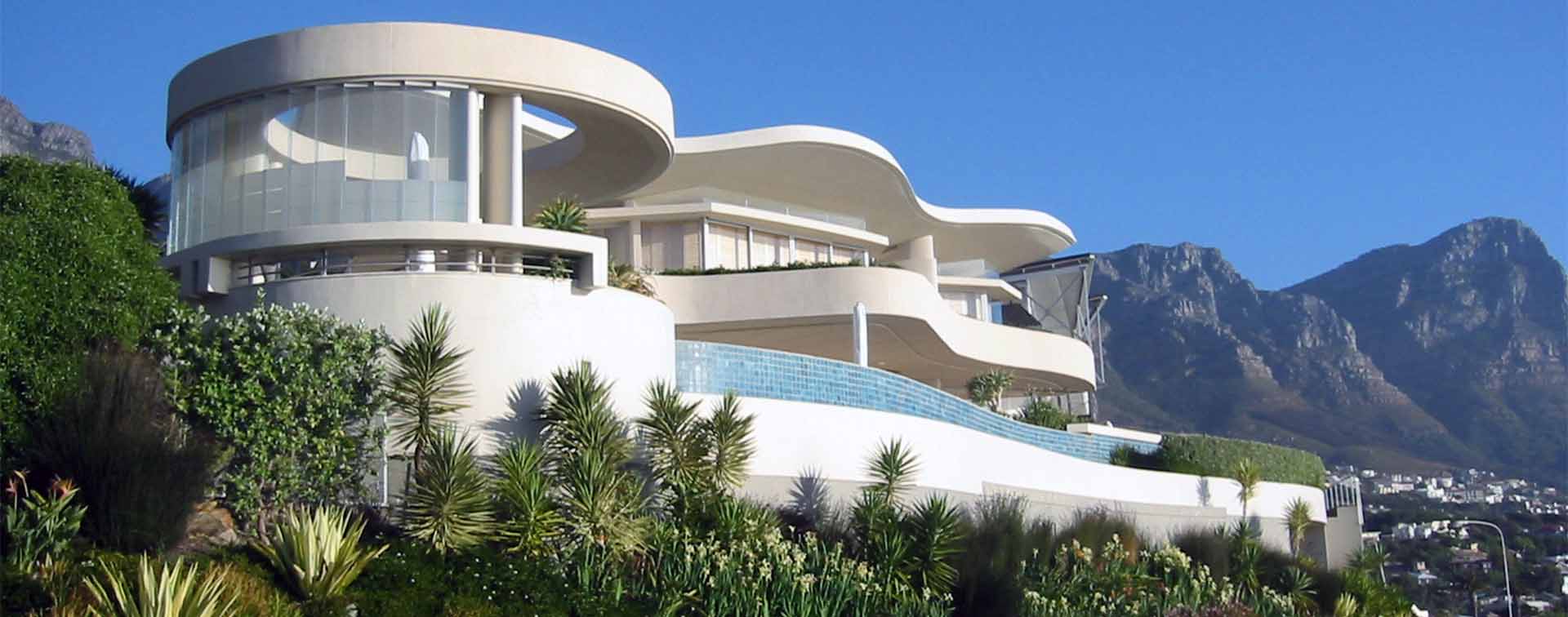
Berry Everitt is CEO of Chas Everitt International, the property group at the forefront of marketing luxury real estate in South Africa to both local and foreign HNWIs.
The luxury real estate sector is flourishing in Africa, especially in South Africa, which continues to boast the largest concentration of high-net-worth individuals (HNWIs) on the continent.
As the Africa Wealth Report 2024 shows, South Africa has a total of USD 37,500 millionaires, centi-millionaires, and billionaires, which is more than twice the number of wealthy individuals who are resident in Egypt, and more than three times the number resident in Nigeria — both of which have bigger economies than South Africa’s, according to the latest International Monetary Fund figures.

South Africa also continues to dominate the list of top 20 wealthiest cities and regions in Africa, with six areas appearing on the top 10 list. But the demand for luxury and super-luxury homes is by no means evenly spread across these areas, thanks to the steady semigration of affluent individuals from Gauteng and other northern provinces to the Western Cape over the past 10 years, especially during 2021 and 2022.
This movement pattern is reflected in the decreased number of HNWIs living in Johannesburg, Pretoria, and the Durban/Umhlanga/Ballito (North Coast) area, and corresponding increases in the number of wealthy people who have chosen to live in Cape Town, the Cape Winelands, the Garden Route, and the Whale Coast. The value of good financial governance and reliable municipal services is also demonstrated by significant regional differences in the average prime property prices. Rising demand has driven this up to USD 5,600 per m2 in Cape Town’s most expensive suburbs, for example, compared to just USD 1,800 per m2 in Johannesburg’s wealthiest areas.
And this differential is now giving rise to some interesting buying patterns in South Africa’s luxury real estate sector. The country’s super-wealthy (the ultra-high-net-worth individuals) remain largely unaffected and continue to favor world-class lifestyle estates such as Val de Vie and Pearl Valley near Paarl in the Cape Winelands, where a new international airport is being built. We find that our southbound HNWI clients are now often eschewing Cape Town in favor of Hermanus in the Whale Coast, Mossel Bay, and Plettenberg Bay in the Garden Route, where prime property prices average around USD 2,400 per m2.
However, Cape Town itself continues to attract global publicity as one of the world’s most beautiful and best places to live in. Luxury homes in the city’s Atlantic Seaboard and Southern Suburbs continue to lure droves of affluent foreign business leaders, celebrities, and retirees who are quick to see the extraordinary property value proposition created by the current rand exchange rate against currencies like the US dollar, the pound, and the euro.
At current rates, USD 1 million buys around 178 m2 of prime property in Cape Town, compared to around 26 m2 in New York, for example, or 29 m2 in London. And what this means is that for the price of a cramped one-bedroom apartment in either of those two cities, foreign buyers could easily acquire a luxury two-bedroom oceanfront apartment in Camps Bay, one of the most exclusive areas on Cape Town’s Atlantic Seaboard, or a 600 m2 plush four-bedroom home in the Stonehurst Estate of the Constantia suburb.
In contrast to other major economic blocs, Africa has a mostly young and rapidly growing population, as well as a very fast rate of urbanization at 3.5% a year, which is expected to continue until 2050. This trend is giving rise to a rapidly increasing number of new home-grown millionaires who are finding lucrative opportunities across the continent in communications, financial services, infrastructure, renewable energy, retail, and manufacturing, as well as in agriculture, logistics, and commodities, and raising the local demand for luxury homes.
At the same time, many African countries are working hard and purposefully to attract foreign HNWIs and the fresh capital investments they need for their development programs. The success of these efforts is most clearly reflected in countries such as Mauritius, which has achieved an incredible 87% gain in the number of HNWI residents over the past 10 years, and Morocco, which is now the fifth-wealthiest country in Africa, with three cities (Casablanca, Marrakech, and Tangier) among the top 20.
Meanwhile, we have been watching the luxury market in Johannesburg come strongly back to life over the past six months, as increasing numbers of expat and foreign HNWIs as well as local buyers take the opportunity to acquire high-end properties in the city regarded as the ‘Manhattan of Africa’ at well-below market value. Luxury property buyers across the globe have a growing awareness of South Africa as an excellent investment and second-home destination for a variety of reasons. Johannesburg, in particular, is seen as one of the most convenient and well-set-up gateways to the vast and tantalising ‘new’ markets of Africa.
Consequently, we believe that Johannesburg will remain the most attractive base for both South African and foreign HNWIs who are keen to invest or establish new businesses in Africa, and that its luxury property sector will continue to experience rising demand and value growth for the foreseeable future.